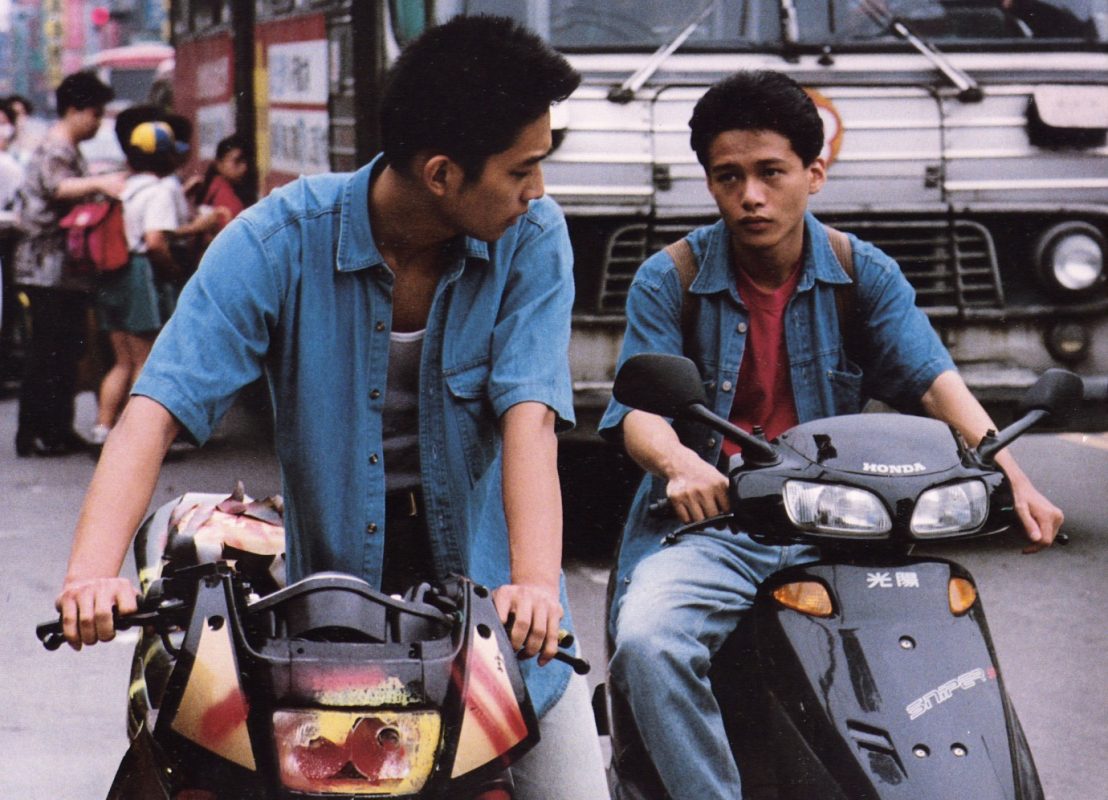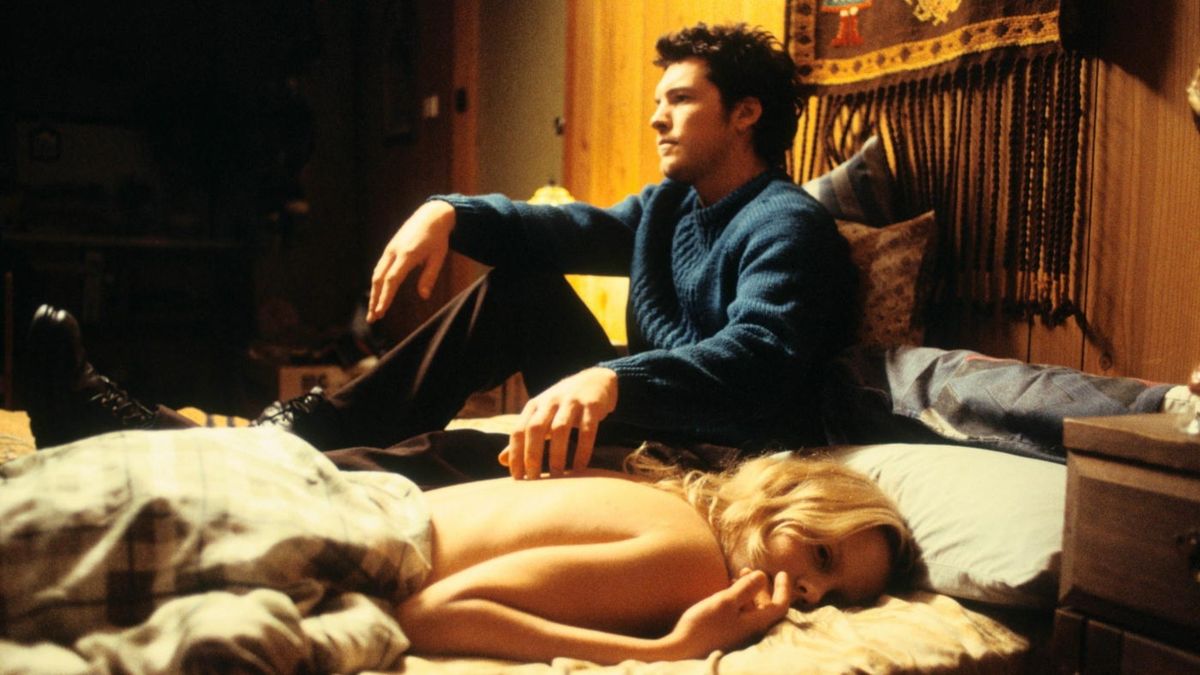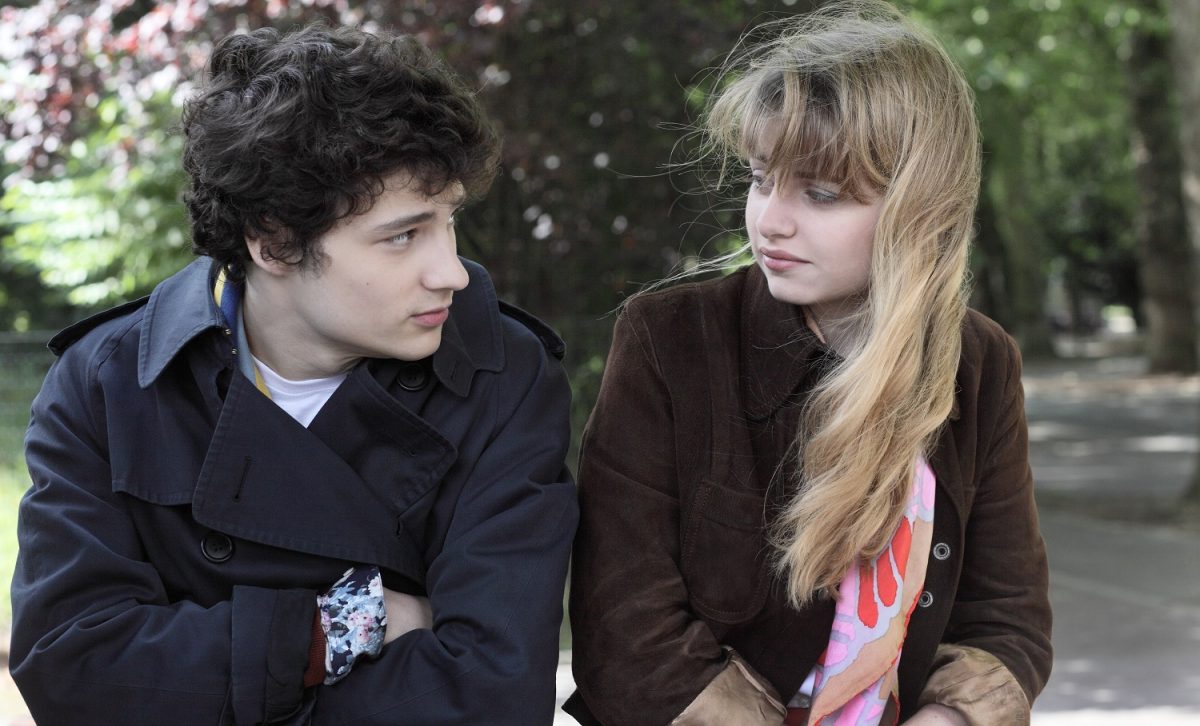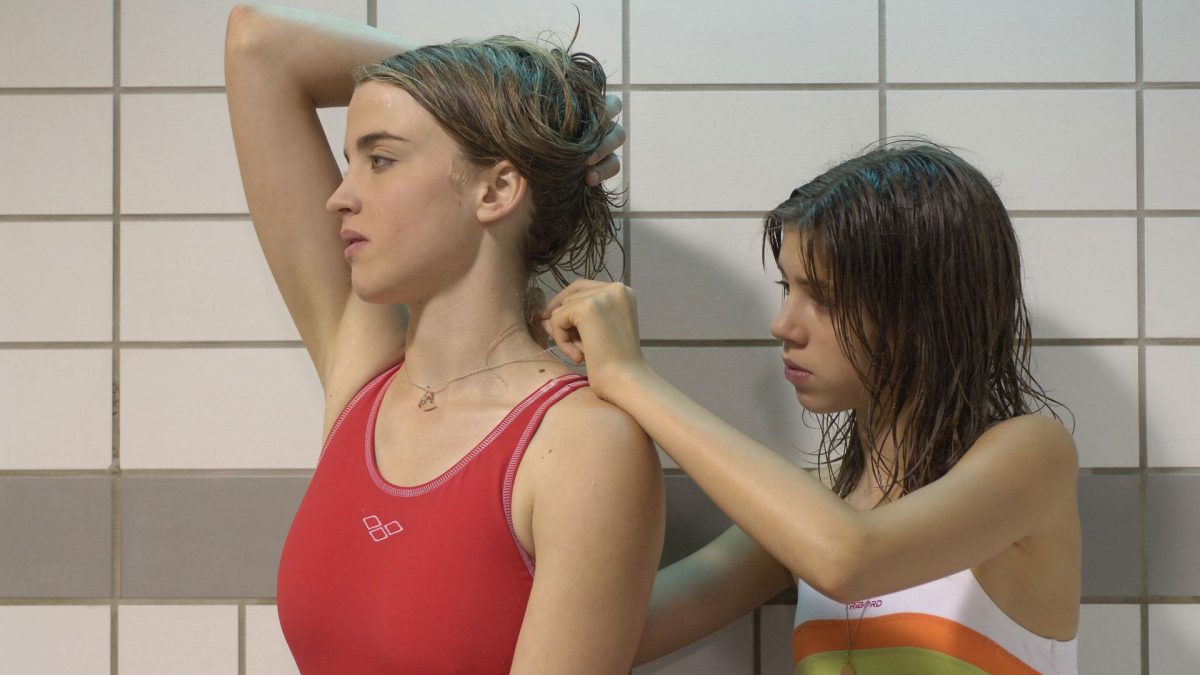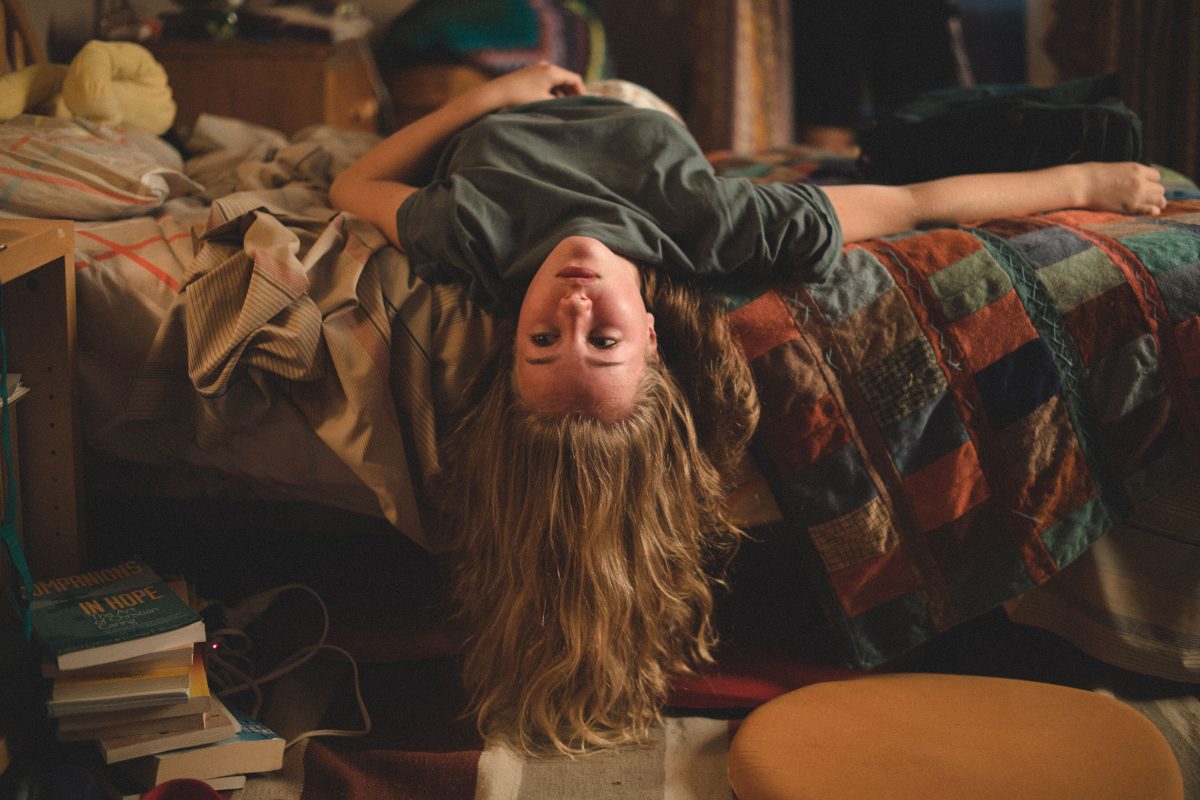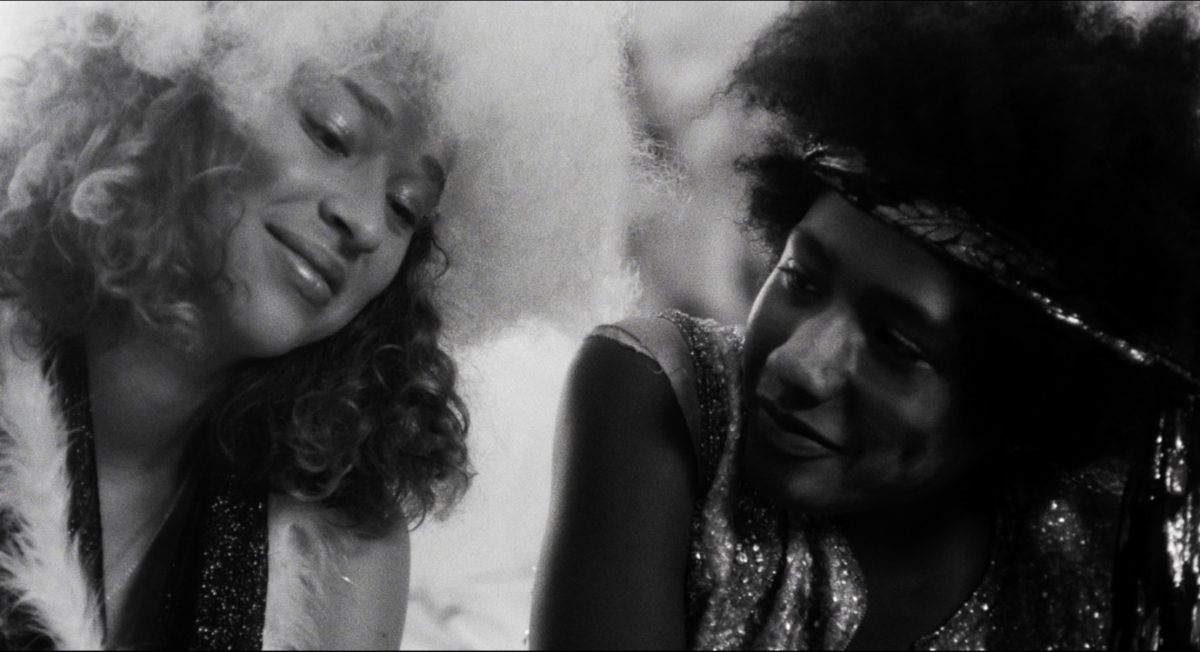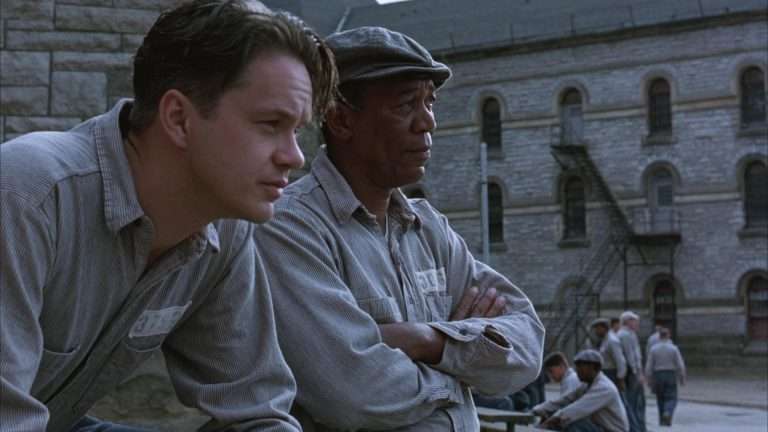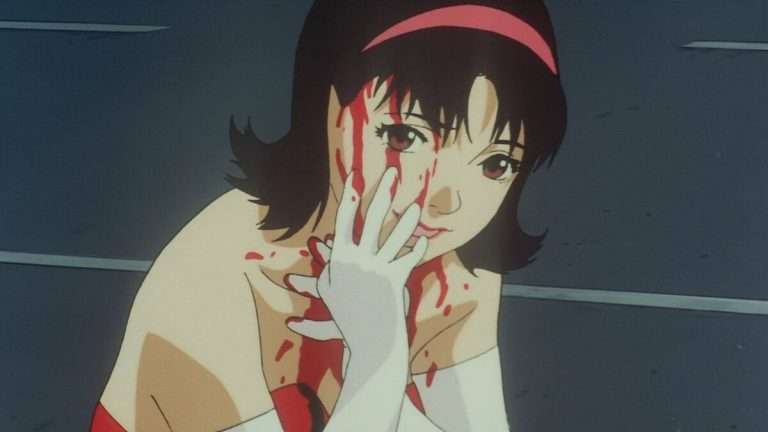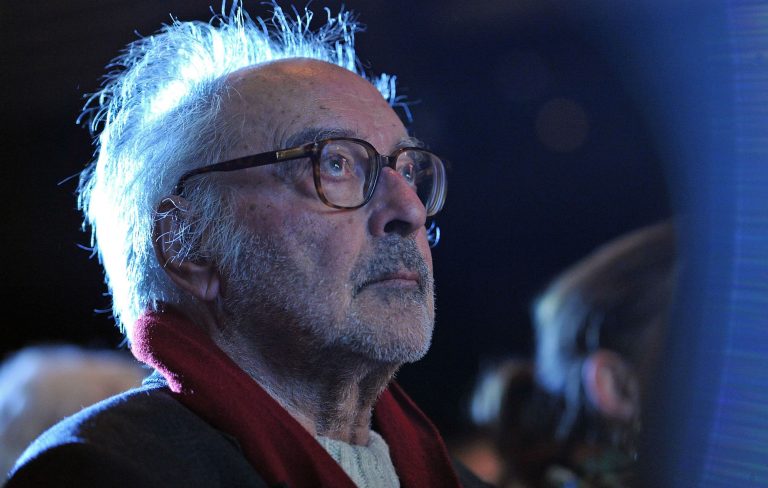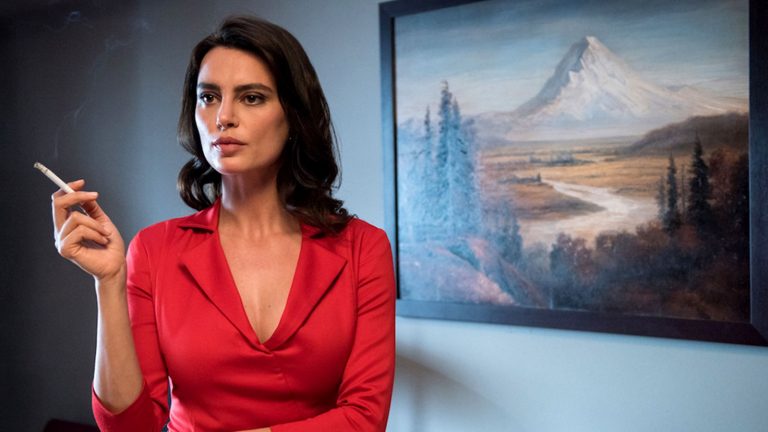From Truffaut’s “The 400 Blows” (1959) to Linklater’s “Boyhood” (2014), the coming-of-age genre continues to speak to the young-in-age as well as the young at heart. Whether it inspires a youthful hurrah or evokes a wistful tear, a good coming-of-age film conveys the ethos of its generation — from the rebellion of the sixties to the ennui of the new millennium.
No matter from which generation it emerges, the typical coming-of-age film usually contains a rite of passage (an event, ceremony, or age-related milestone) that is symbolic of a young person’s transition from adolescence to maturity, and which may be embedded as part of a larger journey. In “The Graduate” (1967), Benjamin Braddock must ascertain what his future should be, and in “Moonlight” (2016), Chiron’s acceptance of his queer identity ultimately fuels his growth as a character. Whatever it may be, the rite of passage is meant to provide a sense of direction for the coming-of-age protagonist, offering them a new horizon of territory to explore.
“Explore” is the keyword here. What if a character’s initial goals are fundamentally incongruent with their ultimate purpose? A good coming-of-age film enables and encourages exploration in a manner that facilitates character growth and self-discovery. A poor one (in the film “Sixteen Candles,” for instance) pigeonholes its characters into formulaic archetypes that do little to study and understand the adolescent mind.
All that being said, these ten coming-of-age movies offered below endeavor to meaningfully grapple with young people’s psychology, something that the classical, highly commercialized John Hughes films of the 1980s mostly fail to do. In this list, you’ll find moments of bliss, pangs of sadness, fervid infatuations, and ample amounts of uncertainty — sensations which we have all felt throughout our youth, and secretly yearn to feel once more.
1. Rumble Fish (1983)
“An art film for teenagers” (as described by director Francis Ford Coppola). “Rumble Fish” plays like the brooding flip side of his other teen film, “The Outsiders,” which was released only seven months earlier and sourced from the same original author (S.E. Hinton). Matt Dillon gives us his best James Dean impression as the seductively punkish Rusty James; Mickey Rourke plays The Motorcycle Boy, his detached, color blind, hard of hearing older brother; and Dennis Hopper gives a memorable performance as the siblings’ drunk but softhearted father.
“Rumble Fish,” like the art cinema from which it was inspired, is heavy on mood and light on plot. Characters don’t have goals so much as they have ideas. Rusty James yearns to be the revered gang leader his brother once was, and The Motorcycle Boy, fresh off a metamorphic trip to California, sees the world through wiser, albeit jaded eyes, attempting to steer Rusty James toward a more spiritually fulfilling way of life.
So “Rumble Fish,” after a raucous and almost comically violent fight scene near its beginning, unfolds with a sort of hypnotic languor. What you see is Rusty James, The Motorcycle Boy, and their faithful pack of hooligans shifting between daytime hangouts, obscene house parties, and downtown Tulsa — in all of its murky, dreamlike magnificence.
Behind “Rumble Fish’s” arresting black and white visuals is cinematographer Stephen H. Burum, who imbues the film’s mise-en-scène with ample amounts of chiaroscuro, a tip of the hat to the noir films of Old Hollywood — and of course, to the German expressionist films of the twenties and thirties.
While “Rumble Fish” isn’t as jagged or as topsy-turvy as “The Cabinet of Dr. Caligari” (1920), it feels oddly surreal, complete with looming shadows, mysterious smoke billows, and an experimental score, courtesy of The Police’s Stewart Copeland. Due to these eccentricities — coupled with a contemporaneous hunger for the sorts of movies John Hughes was directing — “Rumble Fish” bombed at the box office and was largely a critical failure. Today, however, its artistry has been acknowledged in spades.
2. Rebels Of The Neon God (1992)
Tsai Ming-liang has always possessed an offbeat sense of humor and an impish penchant for the perverse, which has only compounded with age. He’s always tended toward the ridiculous, placing stoic characters in absurd situations, assuming the role of voyeur, using the camera to document how they react. In his magnificent feature debut, “Rebels of the Neon God,” Tsai’s focus is on a group of latchkey kids, whose dismal prospects are, in a way, so preposterously sad that one can’t help but find an odd, deadpan sort of humor about them.
What’s funnier — or rather what’s sadder — is the muddled manner in which Tsai’s subjects accept the suffering the director imparts on them. When Ah-Tze (Chen Chao-jung) arrives back at his squalid flat after a night of pilfering coins from payphones, he discovers that a blocked drainage pipe has completely inundated his living space. He can’t be bothered to fix it, opting instead to plod across the flooded floor to the refrigerator, where he tests whether or not days-old food has expired. Similarly, Hsiao Kang (played by Tsai’s regular lead, Lee Kang-sheng) watches one day from afar, as his motorbike is indiscriminately hauled away, consumed by the implacable entropy of the enormous city in which he lives.
That city is, of course, Taipei, and it’s clearly the “Neon God” referenced in the title. Despite the overwhelming sadness wafting over the capital’s concrete skyline, Tsai shoots many of the scenes with a youthful shimmer, following his wayward gaggle of misfits and loners, as they shift between nocturnal arcades, dingy hotel rooms, and late-night eateries — pausing briefly for sex, the pleasures of which are inevitably attenuated. They are emblems of cool, Rebels of the Neon God, whose methods of worship only further entrench them in a cycle of continuous despair. Tsai balances this melancholy with bursts of youthful glamour, encasing “Rebels” in a gritty, urban mystique, which will indubitably appeal to the more defiant sensibilities of the nineties generation.
Also Read: 10 Best Films of Tsai Ming-liang, Ranked
3. Somersault (2004)
In Cate Shortland’s debut feature, “Somersault,” Abbie Cornish portrays Heidi, a young “seductress” who runs away from home after she’s discovered in bed with her mom’s boyfriend. She embodies the behaviors of what some might call a nymphomaniac, but her promiscuity appears more rooted in experimentation than any sort of nefarious sexual impulse. That — and her apparent loneliness causes her to seek love in all the wrong places.
Defying any simple explanation, there is a subtle power in the way Cornish plays Heidi: quiet, self-effacing, but never bashful. Despite the intimate nature of Shortland’s small-scale production, Cornish commands a fierce screen presence, using her precision as an actor to bring emotional depth to a screenplay that feels rather ordinary at times, hampered a bit by the usual clichés that one can find in any back catalog of small, indie, coming-of-age films.
But the film’s various shortcomings don’t detract from the complexity that Cornish is able to convey. Her co-star, Sam Worthington (as Heidi’s love interest, Joe), is equally brilliant, matching Cornish’s innocent allure with a gruff but gentle exterior.
While certain elements of the screenplay may feel extraneous, it is Heidi and Joe’s on-again-off-again relationship that steals the show — particularly the great care with which Shortland handles the couple’s more intimate moments, emphasizing the tactile nature of the couple’s sexual dynamic. (In “Somersault,” touch extends well past pure carnal desire, and instead morphs into a language with which the pair uses to better understand each other.)
In some ways, “Somersault” is a flawed film, forgotten after a brief stint on the festival circuit. But there is so much fervor in its execution that you can’t help but forgive whatever defects Shortland displays as a debutant director.
4. My Golden Days (2015)
A loose prequel to his 1996 film “My Sex Life… or How I got into an Argument,” Arnaud Desplechin’s “My Golden Days” is a nostalgia-filled whirl through the adolescent life of Paul Dédalus (Quentin Dolmaire/Mathieu Amalric), as he reminisces about his childhood while detained at a Paris airport. Divided into three separate memory fragments, Paul recounts his emotionally troubled relationship with his mother (who would later kill herself); the physical abuse he endured at the hands of his father (who would remain a distant figure throughout his youth); and the time he relinquished his passport to a young Russian so that he could escape the USSR.
But the most indelible, engrossing, haunting memory of Paul’s proves to be his torrid romance with the beautiful Esther (played with beguiling allure by newcomer Lou Roy-Lecollinet). As a love affair between two burgeoning teens, passion is certainly not lacking. Yet Desplechin is subtle in his depiction of the couple’s relationship, giving their hot-blooded affaire de cœur a layered complexity beyond that of a simple dalliance.
Though it is a relationship strained by pride, promiscuity, and physical distance, the couple’s various declarations of love, sometimes directly after silly squabbles, oftentimes through romantic letters, remain poetic and sincere. (At one point, young Paul compares Esther to a Hubert Robert painting; Esther blushes.)
“My Golden Days” is a wistful elegy to youth. But even more fundamentally, it is a film about memory — about the unreliability of it. Paul, as he recalls his early life, finds himself fixated on moments that, for him, evoke the most emotion, generate the greatest sense of longing. However, attentive viewers will notice that adult Paul switches his narration from first to third person early into the film, contributing to an air of impersonality.
In many ways, “My Golden Days” appears to be Desplechin’s poignant reminder that we cannot relive our youth, no matter our intense yearning for it. Or in the words of Wong Kar-wai, “the past is something he could see, but not touch. And everything he sees is blurred and indistinct.”
Explore More: The 20 Best French Movies of the Decade (2010s)
5. Princess Cyd (2017)
Following a brief festival run and subsequent limited theatrical release, “Princess Cyd” seems to have disappeared from the cinematic consciousness nearly altogether. Truth be told, much of Stephen Cone’s 2017 film feels unremarkable on its surface, from its simple story to its pared-down cinematography. But there’s an undeniable power in its simplicity — a feeling that the barebones style Cone employs is sufficient for telling the story that needs to be told — as it tackles complex, uniquely female issues that tend not to receive as much screen time in more mainstream Hollywood fare.
Or at least issues that we often see misrepresented. Much of “Princess Cyd” is devoted to exploring the sexuality of its titular teen, Cyd Loughlin (Jessie Pinnick), as she takes a welcome break from her father in South Carolina to spend the summer in Chicago with her aunt Miranda (Rebecca Spence). Cyd’s imperfect understanding of sex — along with her own burgeoning libido — occasionally proves to be a handful for Miranda, who is unmarried and has long been celibate. But when Cyd brings home an androgynous mohawk-haired barista named Katie (Ro White), Miranda is unbothered, if perhaps a little curious and slightly amused. (“Maybe she is a he,” she says without irony.)
In the typical Hollywood movie — if it featured a non-binary person at all — Katie’s presence would have indubitably triggered some sort of conflict: perhaps Miranda wouldn’t be so open-minded; maybe Cyd would be embarrassed to be seen romancing Katie, a stereotypical lesbian, as she continues to understand and discover her own sexuality.
Fortunately, “Princess Cyd” avoids such glaring clichés, as tension certainly exists, but never quite boils over between the three main characters. Instead, the film presents an honest, naturalistic, and truthful exploration of female adolescence, one that deals with the oft-distorted subject of coming-of-age sexuality and gender fluidity, but one which also dabbles in the territory of familial loss and grief, as well.
Worth Reading: The 15 Best LGBTQ Films Of 2017
6. Water Lilies (2007)
In a statement characteristic of her viewpoint, Céline Sciamma declared her 2019 masterwork “Portrait of a Lady on Fire” as “a manifesto of the female gaze.” Sciamma, who holds her diverse array of influences close and her feminist sensibilities even closer, has always been invested in bringing (often young) female-centric stories to the cinema (see: “Tomboy,” 2011; “Girlhood,” 2014; and “Petite Maman,” 2021).
Her impressive directorial debut, “Water Lilies,” is of a piece with this trend, centering on three teenage girls struggling to navigate their way through adolescence. The film’s primary focus is a sullen and reserved girl named Marie (Pauline Acquart), who takes a sudden interest in synchronized swimming. But there is also Anne (Louise Blachère), her chubby, immature best friend; and Floriane (Adèle Haenel), the captain of the synchronized swimming team and centerpiece of Marie’s carnal desires.
The film is captivating in part due to Sciamma’s ability to give each girls’ story equal weight within the narrative — especially Anne’s, as Blachère’s character would likely amount to a mere afterthought in most films of this genre. (She is part of a subversive character arc in “Water Lilies,” that sees her lust after a hunky jock named François [Warren Jacquin], only to spit in his face once it becomes clear that he is using her.)
The uneasy, push-and-pull relationship between Marie and Floriane is also of considerable intrigue, particularly the unconventional way in which the film depicts their queer sexuality, rendering the young sexual experience — usually regarded as a pivotal point in a young person’s life — banal and sadly routine.
Yes, you’ll notice that so much of Sciamma’s inaugural production feels erotic — from the way that Floriane munches on a banana, to the manner in which Marie bites into a half-eaten apple, discarded by Floriane only minutes earlier. Sex is an ever-present force in “Water Lilies,” though its realities do little to facilitate growth among the film’s three adolescent characters. Perhaps serving as a rejection of the typical coming-of-age formula, Sciamma seems to be focused on something even larger: the hyper-sexualization of young girls and the role that women play in society.
As the story unfolds in a place where chauvinistic ideals are the established norm, Sciamma’s overarching metaphor speaks volumes: the synchronized swimmers feign smiles as they come up for air, but down below, their legs kick tirelessly, a testament to the inherently performative nature of femininity.
7. Monster (2023)
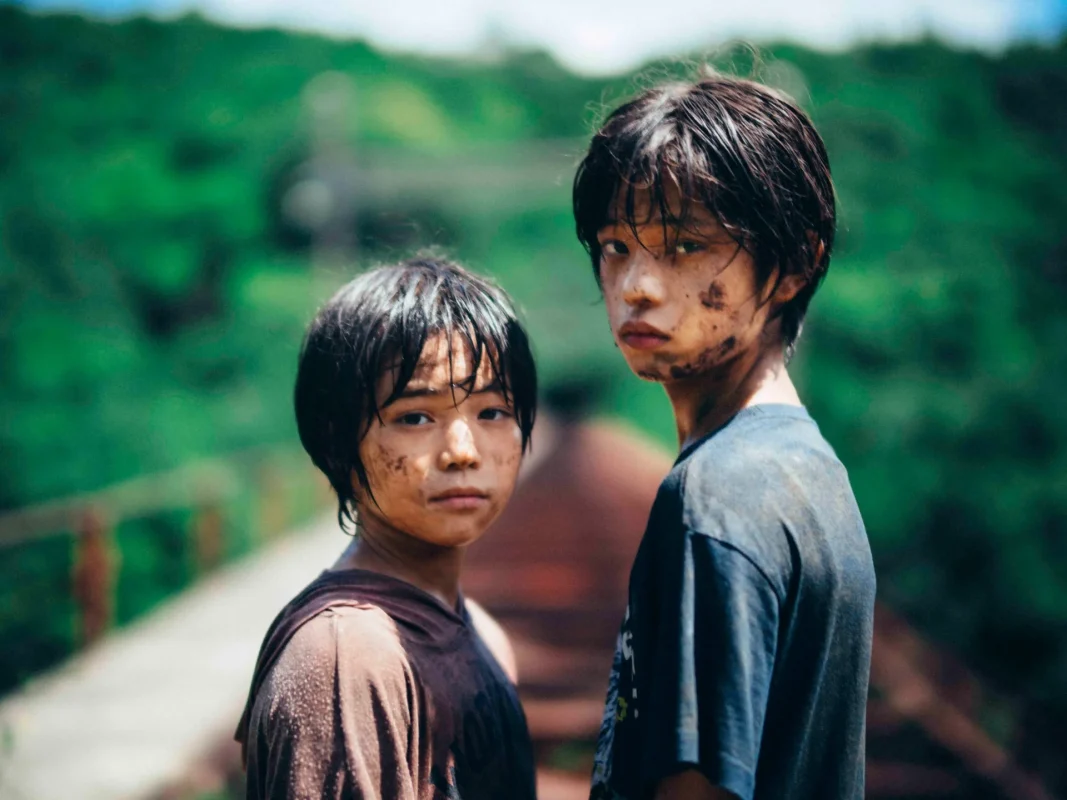
At the 2023 Cannes Film Festival, Hirokazu Kore-eda’s “Monster” won two awards. I have no qualms about disclosing the first (Best Screenplay, courtesy of lauded TV writer Yuji Sakamoto), but to divulge the second would spoil its third act, and I wouldn’t dare! “Monster,” one of the most enigmatic and revelatory coming-of-age movies you’ll likely see, is a tour de force of shifting perspectives.
Clearly taking inspiration from Kurosawa’s seminal text, “Rashomon,” it begins from the vantage point of a widowed mother-of-one (Sakura Andō) concerned with her son Minato’s (Sōya Kurokwaw) recent behavior. Kore-eda then shifts to the POV of Minato’s teacher, Mr. Hori (Eita Nagayama), whom she blames for his actions, before finally centering the narrative around Minato himself, who provides many unexpected answers to a film that elicits so many interesting questions.
Related Read: All Hirokazu Kore-eda Movies Ranked
Like “Rashomon,” “Monster” effectively examines how a singular perspective can twist and distort reality. Which, in turn, can lead to a frustrating and maddening viewing experience for the first two-thirds of the film, as one fears that much of Kore-eda’s labyrinthine narrative will go unresolved. Moreover, it feels counterintuitive for a film purportedly about the experiences of a child to be positioned from the perspectives of two adults; throughout the first two parts of “Monster,” Minato’s life exists in the narrative’s periphery.
But, as we come to discover, that is wholly the point. Kore-eda’s child-centric final third uses Kurosawa’s well-known premise to transform an ostensible story about child abuse into a film that speaks about the vulnerability, innocence, and fragility of youth. Aided by Ryuichi Sakamoto’s haunting score — and a cast of mostly downbeat characters — the film’s ominous title envelops the entire production. Who is the monster? Hori? Minato? Someone else, entirely? That specific question is left hanging in the air, as the film is instead more interested in subverting its name altogether, encouraging the viewer to question their own perspectives and interpersonal judgments.
Must Explore: The 25 Best Films of 2023
8. A Colony (2018)
There’s a strong emotional undercurrent running beneath Geneviève Dulude-De Celles’s otherwise placid debut feature, a compassionate and heartfelt study of a demure female tween. Celles’ understated approach here certainly has merit, since it feels slightly generic.
However, the film is held together by its three outstanding child performances, headed by Émilie Bierre, who plays the 12-year-old Mylia with a level of restraint that is beyond her years. When she’s not attending to her kid sister (played by a magnificent Irlande Côté), she’s busy trying to navigate the pressures of her first semester in high school, grappling with a loss of innocence while a warped sense of maturity is forced upon her.
Related: 50 Best Films of 2018
This loss of innocence is what’s at the heart of “A Colony.” While Mylia corners herself in the bathroom stall the morning before her first class, her peers are busy gossiping in the hallway about last night’s party. Mylia, who clearly possesses an elevated sense of self-awareness, is intrigued, yet filled with palpable unease and self-conscious feelings. (She tries to fit in by wearing a skimpy costume to the Halloween party, but can’t bear to be groped in the bathroom by a horny male member of the “it-crowd,” whom she barely knows.) A happy medium between these two worlds is found in Jimmy (Jacob Whiteduck-Lavoie), an Abenaki native, who is a sort of outcast in Mylia’s school, and thus doesn’t pressure her to assimilate into the vapid lifestyle led by her peers.
“A Colony” will be familiar to anyone who has lived through the ninth grade, and engrossing for anyone who still enjoys reminiscing about it. It speaks to the nerve-wracking years of puberty, when platonic relationships become increasingly more difficult and fraught, and every interaction between the sexes is subject to needless gossip. But Mylia is not ready to grow up or be sexualized. “A Colony” wrestles with this quandary to great effect, featuring a shockingly impassioned third act that places it on the same level as some of the most beloved contemporary coming-of-age classics.
9. Sweet Thing (2020)
Directed by Alexandre Rockwell, “Sweet Thing” is a delightfully tender indie flick with a lively old soul. Shot mostly on grainy black and white film stock (with vivid bursts of color scattered throughout), Rockwell pays homage to classic filmmaking style using iris shots and a nostalgic soundtrack, whilst naming the film’s main protagonist after Billie Holiday (which unfortunately makes sense given that this film is much about the harmful effects of alcohol).
Billie and Nico (Lana & Nico Rockwell, offspring of director Rockwell) live in a shabby, rundown house with their bumbling dad, Adam (Will Paxton), who is usually not a mean drunk, but a drunk nevertheless. The relationship between the siblings and Adam is fragile and complicated, and it usually appears that Billie is taking care of Adam, and not the other way around. Nonetheless, the affection felt between the trio is evident throughout the beginning of the film — and even after a maudlin stupor that turns violent, the love Billie and Nico have for their dad endures.
After Adam is forced to seek treatment for his alcoholism, Billie and Nico come to stay with their mom, Eve (Karyn Parsons), who views them as an inconvenience, and her boyfriend, Beaux (M.L. Josepher), a loathsome brute channeling his inner Robert Mitchum from “The Night of the Hunter.” Alcohol is ever-present at their home, too — the consumption of which appears less depressing, yet still contaminates the household like a deadly poison.
After a skirmish with Beaux, Billie and Nico flee with a kindly waif named Malik (Jabari Watkins), who leads them on a lengthy adventure that ends on a heart-rending note. Although “Sweet Thing” concludes with a bit too much haste, Rockwell produces a coming-of-age feature that is so very poignant and gut-wrenchingly bittersweet — a work of art that is, unfortunately, greatly underappreciated and too obscure for its own good.
10. Submarine (2011)
Similar to “The Graduate,” Richard Ayoade provides an ironic and bizarre portrait of adolescent loneliness and ennui through his narrative feature debut, “Submarine.” Whereas Benjamin Braddock remains fixated on his future, 15-year-old Oliver Tate (Craig Roberts) cannot stop obsessing about anything and everything occurring in the present — most notably his sex life and bedroom goings-on of his own parents. (He devises a clever way to test whether his parents have had intercourse the night before, judging the dimness or brightness of their bedroom lighting.)
And thus, Oliver must balance his own romantic impulses with the desire to remedy the ongoing marital troubles between his go-getter mom (Sally Hawkins) and his clinically depressed dad (Noah Taylor). He notices a dour, emotionally troubled female classmate named Jordana (Yasmin Paige), who displays a fondness for bullying and an even greater penchant for pyromania, and is instantly besotted.
Related: 75 Best Movies of the 2010s Decade
An interesting dichotomy develops in their relationship — between passion and disinterest — in which Jordana absolutely forbids the elicitation of emotion, but looks cozy when her head is resting on Oliver’s shoulder. Oliver toils to navigate this odd dynamic, all the while his suspicions mount over whether his mom is having an affair with a kooky mystic (Paddy Considine). And then, Jordana grows “soft,” which puts Oliver’s “being mean keeps ‘em keen” mentality to the test.
“Submarine” is a droll, idiosyncratic interpretation of the coming-of-age genre, with an episodic plot structure to boot, which has led many critics to regard the film as nothing more than a Wes Anderson pastiche. Derivative as it may be (like Benjamin Braddock, Oliver Tate blows off steam by jumping into a swimming pool), “Submarine” is successful in its depiction of the uneasy, nervous, but oh-so thrilling time of discovering first love, where fleeting moments like catching a picture at the local cinema, embracing under a bright starry sky, or consoling each other through bouts of tears all still appear to move at a delightfully languid pace.


